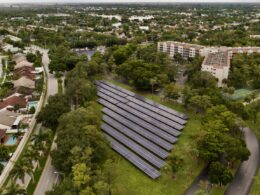The Net-Zero Banking Alliance (NZBA) 2024 Progress Report by the UN Environment Programme Finance Initiative (UNEP FI) reveals that the majority of NZBA member banks are making considerable strides toward achieving their climate targets.
The report highlights the commitment banks made when joining the NZBA, which involves setting their first targets to reduce emissions from carbon-intensive sectors within 18 months of membership. Banks are also required to develop transition plans within 12 months of target-setting, detailing their path to achieving these goals, and to publish a comprehensive set of sectoral targets within 36 months, covering sectors with substantial exposure.
By the end of May 2024, 97% of the 122 banks required to set their initial sectoral targets have met this obligation. Nearly two-thirds of the 91 banks expected to publish transition plans have done so, with another 25% anticipated to follow by year-end. Additionally, around 80% of the 50 banks due to publish a full set of sectoral targets have done so. These figures signal a significant transformation within the banking sector, as institutions adapt to support and finance the global transition to net-zero emissions.
However, the report also highlights areas that require further attention and support. Banks continue to face challenges in setting decarbonisation targets, particularly due to the limited availability of accurate client emissions data, unclear pathways for decarbonisation, and insufficient policy support. Notably, most of the banks that have not met the target-setting milestone are from emerging markets, where these challenges are especially pronounced.
The insights from this progress report will shape the NZBA’s approach to supporting its members over the coming year, with a specific focus on helping emerging market banks that are making progress but need additional time to meet their commitments.
NZBA membership has grown to 144 banks, with 23 more expected to set targets and publish transition plans by the end of 2025. Following a recent vote to strengthen the NZBA’s target-setting guidelines, banks with significant capital market activities will also update their targets to include emissions from this sector by November 2025.
“When NZBA launched, no bank had set a science-based 2030 sectoral target aligned with the Paris Agreement goal to limit warming to 1.5C, and no bank had published a transition plan. Today, 118 banks, well over 80% of NZBA’s membership, have voluntarily disclosed targets and 76 banks, over half of members, have published individual transition plans suited to their business models and markets,” said Shargiil Bashir, Chair of the NZBA Steering Group.






















